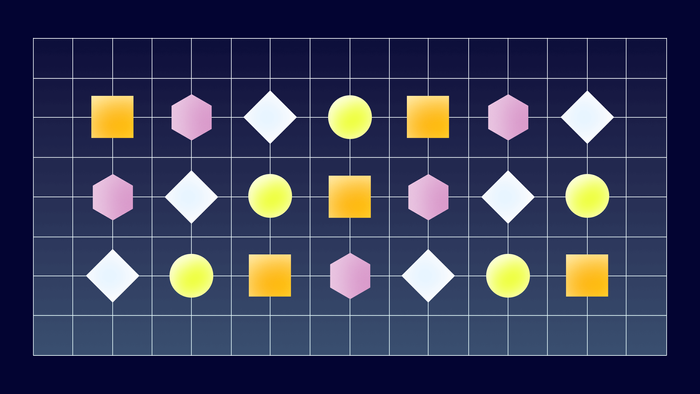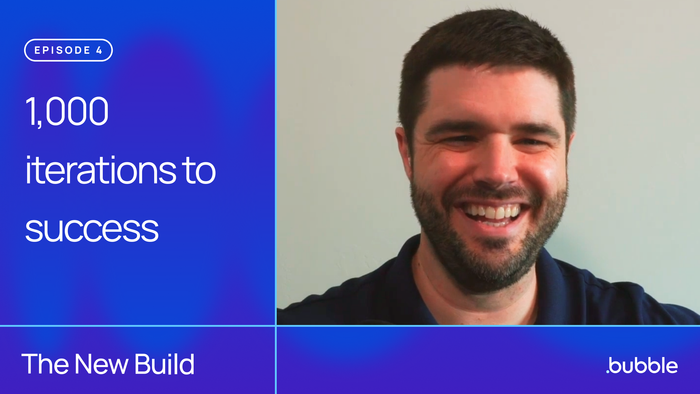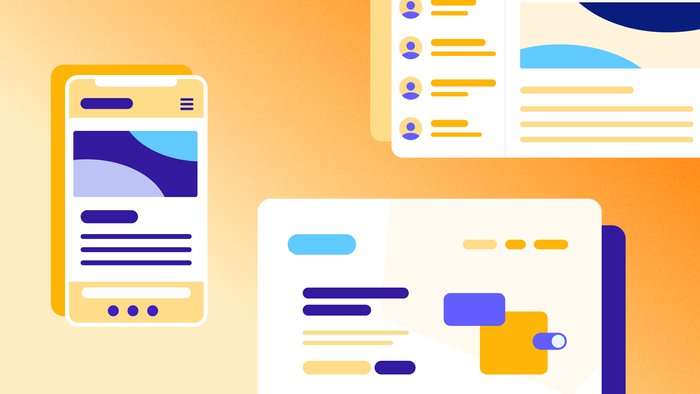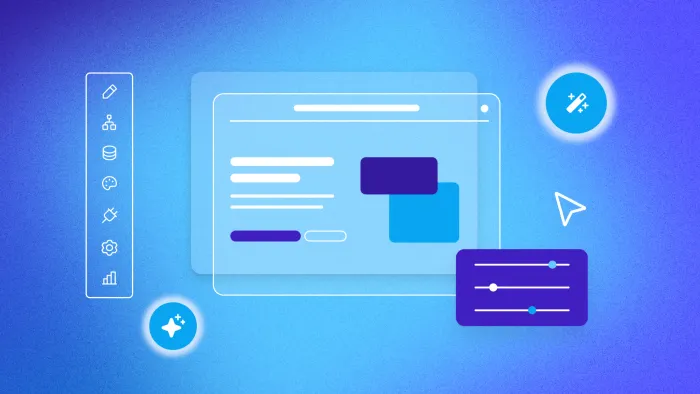We’re living in a transformational moment — generative AI is changing the way we approach creativity, entrepreneurship, and work in important ways. Machine learning and other forms of artificial intelligence have been shaping industries for years now, but generative AI is accessible on an entirely different scale.
Bubble has always been driven by a mission to make technology accessible and help people bring their ideas to life, and AI, like no-code, is especially good at letting small teams and solo founders leverage technology’s power. For a small team trying to build with AI, no-code can be a huge boost.
To start, building your UI and business layer in no-code lets you focus on your core technology. (Why spend resources building those layers out with code?) And then there’s AI — everyone’s excited about its potential to speed up software development and make it more accessible (with good reason!) But the real impact comes when the AI can talk back to humans in a language that's easy for them to understand. That’s what no-code is.
In fact, I’d argue that the future of software development is no-code + AI.
What does this look like in practice? I’m going to dive a bit deeper, but you can also take a peek at some of what we’ve been working on, like our first-ever AI x No-Code Residency.
We’ve Crossed a Threshold With Generative AI
There are a few big reasons why there’s so much excitement around Generative AI right now. We’ve all watched the results go from “this is kind of neat” to “wow, this is amazing and could add a ton of value.” Take, for example, what people have done with large language models (LLMs) like GPT-3 and -4 throughout the past year. Applications like DALL-E, Midjourney, and ChatGPT now let anyone tap into the power of generative AI to create images and text from a simple prompt.
New products like AI-powered search and Microsoft’s Copilot for office documents exemplify the fast-growing role of generative AI in the workplace. We’ve already seen AI’s influence on everyday writing tasks in the evolution of autocomplete tools built into document creation and messaging apps. A new wave of generative AI apps is ready and willing to help you get over writer’s block, turn meeting notes into slide decks, and find better ways to crunch the numbers in your spreadsheets.
Tilting the Field Toward Small Teams
For entrepreneurs — or anyone with an idea to bring to life — the magic happens when you combine generative AI with the widespread availability of APIs and open source models. Add a no-code user interface and you get thriving businesses built by a single person or small team. Not three years ago, you would have needed a tech giant’s budget to build an AI writing assistant trained on a state-of-the-art LLM. Today, one person with domain expertise can build a profitable business atop GPT-3 and Bubble in a matter of months.
Generative AI is ideal for the two-person companies of the world in search of niches primed for transformation. (It’s actually much like no-code in that way.) And with GPT-4 now supporting image inputs alongside text, there are even more opportunities for entrepreneurs to shake things up. In this respect, the playing field is probably tipped at least a little in favor of the smaller players. A two-person startup can explore a new market much faster than a large company can, and now they can ship products at speeds once reserved for large teams, too.
Exploration is the name of the game. Generative AI is still something of a technology in search of problems to solve.
AI and No-Code: Force Multipliers
AI and no-code are force multipliers: Whatever effort you put in, they multiply, helping you achieve 10x results. Force multipliers lower the barrier of entry to doing things, like making it possible to run a software company with two people instead of 100. That means we wind up with more of them because they're easier to get off the ground.
I tend to be genuinely optimistic about new technology creating more opportunity than it destroys. With tools like AI and no-code widely available, there are more reasons for more people to build something and start a business in the first place. From a founder’s point of view, force multipliers like these radically reduce your costs and increase the speed at which you can experiment and explore ideas.
As a developer, I think these tools open up a ton of new markets. Every time technology advances, it creates a sort of ecological niche for people who become experts in deploying that technology. This happened with no-code: One of the things we’ve seen, and become incredibly excited about, is the creation of a whole community of Bubble developers. A similar thing is happening now with businesses built on GPT and other large language models. Businesses like Byword show one way these two force multipliers — AI and no-code — can intersect, with Bubble as the user interface layer atop a tech stack that’s turbocharged by generative AI.
The AI x No-Code Residency
A few weeks ago, when we announced the 2023 AI x No-Code Residency, we wrote that we want to build the GitHub Copilot for No-Code. We see users describing their applications in natural language, and Bubble producing fully-functional no-code web apps where the “source code” can be understood by anyone, not just engineers. A user might describe an app and have Bubble generate a minimum viable product as a starting point. They could then iterate with simple commands, like “make the landing page a little different,” or “make this transaction happen first, then send a confirmation email.” Imagine how many more people could start building if app development happened in this sort of conversational way.
Combining generative AI with a development platform like Bubble is a wide-open field. We’re moving fast in identifying the avenues with the most potential impact and investing in them. Our aim with this first residency is to fast-track answering our biggest questions: Can LLMs be trained to output to Bubble source code? What would integrating this tech into the Bubble experience look like? What tools would we use to get there?
Conversational interfaces for building no-code apps is the next big transformation of the space. A few years ago, a conversational app builder might have sounded outrageous. Today, it’s what we’re hiring people to build.
Dive in and Get Your Feet Wet
It’s exciting and scary to see technology change around you. When a technology as transformative as AI starts to take hold, it’s natural to see the possibilities — good and bad — and wonder, “Where do I fit in here?”
Like I said, I’m an optimist. We at Bubble believe that generative AI will create a ton of opportunity for people. It already is! Combining AI with no-code gives you two force multipliers working in tandem to really open things up. No-code and AI both have learning curves, of course, but they’re also both intrinsically democratized. They’re tools that make advanced technology and entrepreneurship accessible to more people every day.
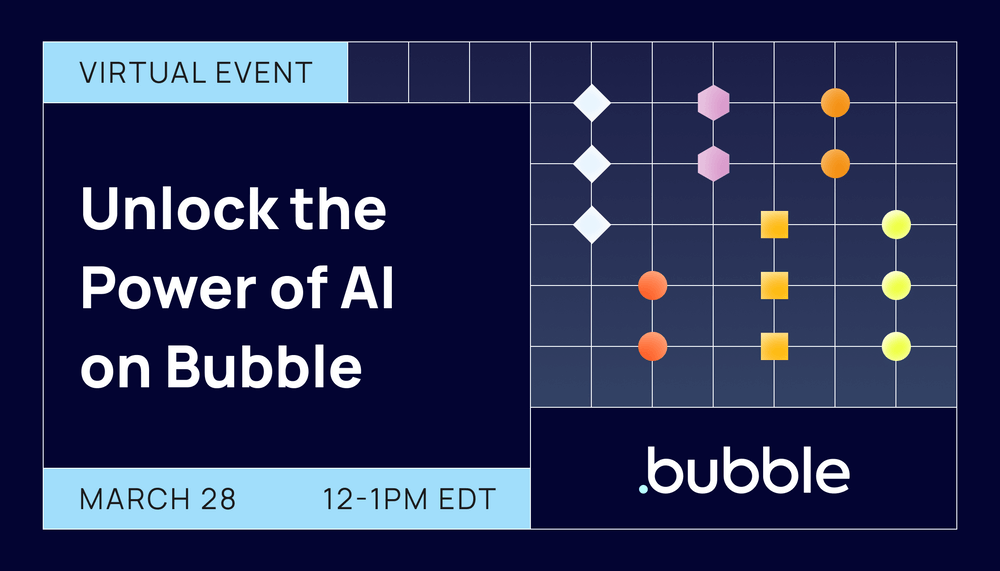
There’s anxiety around AI when it comes to the future of how we work — and who does the work. But AI doesn’t need to be a scary black box that only the most experienced engineers and data scientists get to open up and experiment with.
If you take anything away from reading this article, let it be this: Dive in! Get your feet wet, contribute, and play around. Play with ChatGPT and OpenAI’s APIs. Play with Bubble and our API Connectors. Building is fun, and generative AI and Bubble no-code make it more fun. (And more powerful.)
Build for as long as you want on the Free plan. Only upgrade when you're ready to launch.
Join Bubble
